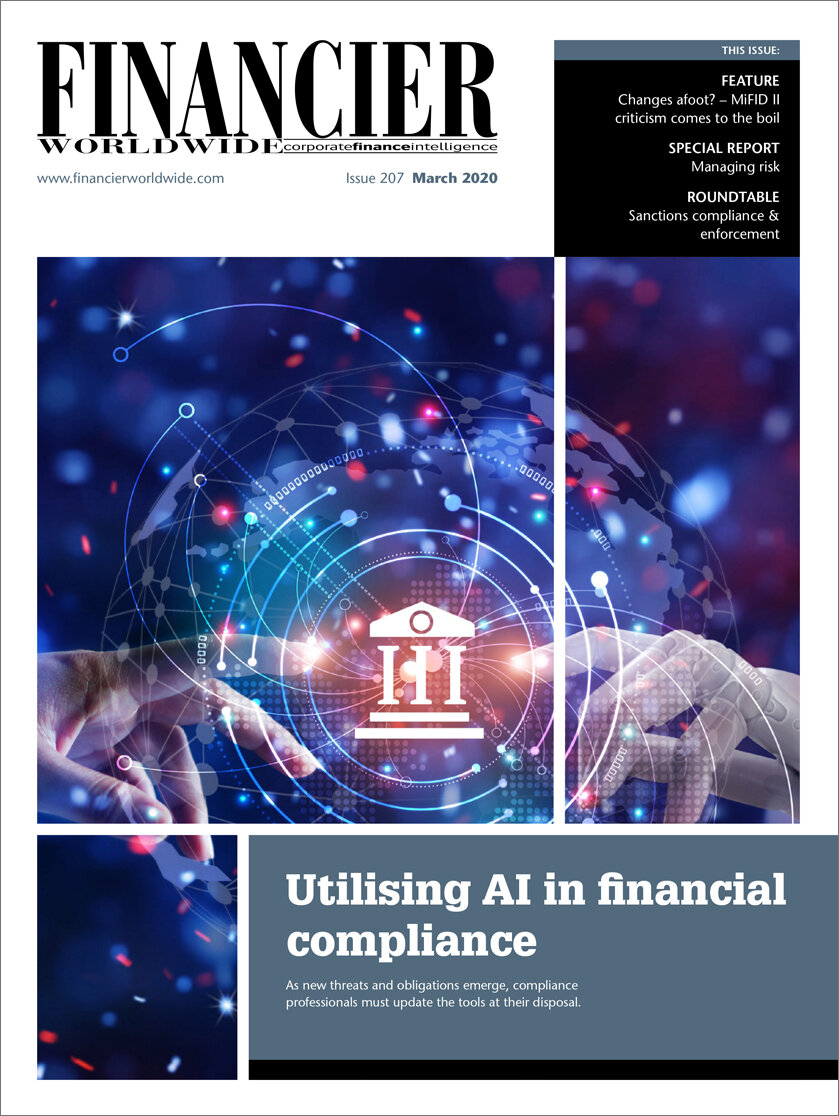Room for improvement in the European biosimilars market
March 2020 | FEATURE | SECTOR ANALYSIS
Financier Worldwide Magazine
The global biologics industry is changing. Across a variety of jurisdictions significant challenges exist, particularly with regard to patent expiration, which opens doors for the biosimilars market. By September 2019, 60 biosimilars were approved in the EU and 23 in the US.
Demographic trends across Europe are having a positive impact on the biosimilar space. The EU population is ageing, with around one fifth above 65 years of age. As a result, there has been a marked increase in demand for treatments targeting diabetes, autoimmune diseases and cancer treatments, among others.
According to Research and Markets, the biosimilar market in Europe was worth $2.9bn in 2018 and is projected to reach $11.6bn by 2024, with a compound annual growth rate (CAGR) of 24.9 percent. However, there are headwinds. Different European markets have variable uptake and policy environments, and there are certainly country-specific challenges to overcome.
The European market is far from homogenous. “Biosimilar uptake has had strong growth despite the obvious challenges around substitutability,” explains Simon Spink, a partner at AA Thornton. “In a lot of jurisdictions, a biosimilar must be prescribed by and that acts as a barrier to uptake compared with small molecule generics which can be prescribed by International Non-Proprietary Name (INN) and then substituted at pharmacy level. Drug reimbursement is not harmonised across the EU, so there is a real need to know the specifics of each system in each market. The specifics of the reimbursement structure in any given market will ultimately underpin the decision to launch, so it is vital to have a good understanding.”
With a significant number of blockbuster biologics scheduled to lose patent protection before 2025, biosimilars across the continent will seek to exploit the opportunities this presents.
Against this backdrop, a new report from KPMG, commissioned by generic and biosimilar trade group Medicines for Europe – ‘Improving healthcare delivery in hospitals by optimised utilisation of medicines’ – identifies a number of steps that would improve the industry.
“Different European markets have variable uptake and policy environments, and there are certainly country-specific challenges to overcome.”
European states could make the marketplace more conducive to biosimilars, according to the KPMG report, by (i) moving away from using lowest-bid procedures and, instead, taking qualitative elements, like a proven track record of supply reliability, into account; (ii) setting accurate volume estimates to guarantee supply, enabling manufacturers to have better predictability; (iii) awarding tenders to multiple winners to encourage multiple manufacturers to remain in the market and to ensure supply; (iv) reopening tenders after the entry of the first multisource medicine in order to foster competition; (v) streamlining the tender process by requiring essential information and digitalising procedures; (vi) creating guidelines and informational campaigns to increase awareness of biosimilars; (vii) creating incentives for biosimilar use that look to long-term sustainability by implementing target agreements and biosimilar use quotas; (viii) drafting national or local guidelines on switching; and (ix) implementing benefit-sharing methods that allow biosimilar savings to be reinvested in the healthcare system.
Pricing is another area of tension in the European market, where discounting and increased competition are having an impact. Most notably in the UK, France, Germany, Spain and Italy, drug manufacturers are offering discounts of up to 70 percent, according to McKinsey. These pricing discrepancies restrict penetration within markets.
The industry must also prepare for the challenge that Brexit will bring, though the UK’s future relationship with the EU is yet to be determined. “Brexit will affect trade so it will impact every market where goods move between the UK and EU Member States,” said Mr Spink. “The UK will no longer be able to participate in centralised EU processes such as applications for marketing authorisations (MAs), though presumably there would be some sort of grandfathering for existing rights put in place, whether that is by generation of a UK cloned right or otherwise.”
According to Louise Jonshammar, an attorney at law at AWA Sweden AB, manufacturers based both in EU and in the UK will need to monitor the development of trade agreements between the EU and UK. “At this point, there is still uncertainty as to how the exhaustion doctrine will apply in the UK for patented products sold in the EU, and this will specifically have an impact on the parallel imports of pharmaceuticals,” she says
The outlook for the European biosimilars market appears positive. “It is getting harder, in both Europe and the US, for innovators to obtain broad platform patents on new biologics such as antibodies,” says Niklas Mattsson, a partner and European patent attorney at AWA Sweden AB. “However, in turn, this means that ensuring freedom to operate for a biosimilar product, while still complicated, is becoming easier. As a result, there may be opportunities to raise funds from venture capitalists and move forward in a more foreseeable way in the future.”
© Financier Worldwide
BY
Richard Summerfield

